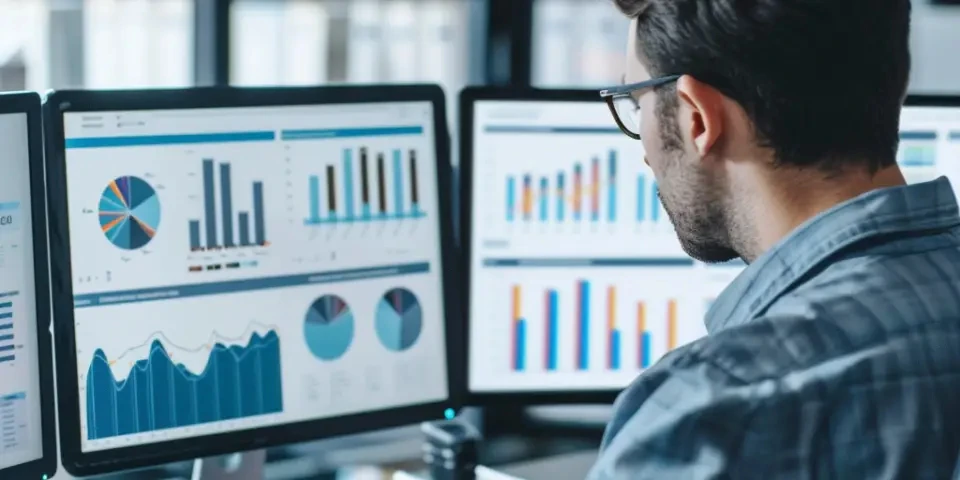AI for Social Good Using Artificial Intelligence to Solve Global Challenges
Artificial Intelligence (AI) has emerged as a powerful tool that holds immense potential to address and solve various global challenges. With its ability to analyze large amounts of data, learn from patterns, and make predictions, AI can provide insights and solutions that can positively impact societies worldwide. In this article, we will explore how AI is being used for social good in different domains.
1. Healthcare & Disease Recognition
AI algorithms are being developed to aid in the early detection and diagnosis of diseases. By analyzing medical images, such as X-rays and MRIs, AI models can identify patterns and recognize potential abnormalities. This technology can lead to earlier treatment and improved patient outcomes. Additionally, AI can help streamline administrative tasks in healthcare facilities, allowing healthcare professionals to focus more on patient care.

2. Environmental Conservation
AI can play a crucial role in monitoring and protecting the environment. By analyzing satellite imagery, AI algorithms can track deforestation, detect illegal logging activities, and identify areas at risk of natural disasters. This information can assist conservation organizations and governments in making informed decisions to preserve ecosystems and wildlife habitats.
3. Education & Personalized Learning
AI-powered educational tools can adapt to the learning style and pace of individual students, providing personalized learning experiences. These tools can identify areas where students need the most help, offer customized study plans, and provide real-time feedback. AI can also enhance access to education by providing online learning platforms and resources to students in remote or underprivileged areas.
4. Poverty Alleviation
AI technologies can help address poverty by improving financial inclusion and access to services. AI-powered chatbots can provide personalized financial advice, guiding individuals on budgeting and savings. Machine learning algorithms can analyze creditworthiness based on alternative data, enabling financial institutions to extend loans to those without traditional credit history. AI can also assist in disaster response and recovery efforts, optimizing resource allocation and aid distribution.
5. Public Safety
AI can enhance public safety by analyzing large amounts of data to detect patterns of criminal activities and predict potential threats. Facial recognition technology can aid law enforcement agencies in identifying suspects and preventing crimes. AI-powered surveillance systems can monitor crowded areas for signs of danger or emergencies, enabling swift responses to potential hazards.
6. Agriculture & Food Security
AI can improve crop yields and optimize agricultural practices. By analyzing climate data, soil conditions, and crop growth patterns, AI models can provide recommendations for irrigation, fertilization, and pest control. This can help farmers make informed decisions, conserve resources, and increase their productivity. AI can also assist in predicting and managing food shortages by analyzing market trends and suggesting strategies for food distribution.
7. Mental Health Support
AI-powered chatbots and virtual assistants can provide accessible and personalized mental health support. These AI tools can engage in empathetic conversations, provide coping strategies, and direct individuals to appropriate resources. AI can also analyze social media data to identify individuals at risk of mental health issues, enabling timely interventions and support.
8. Energy Efficiency
AI algorithms can optimize energy consumption and improve efficiency in various sectors. By analyzing data from smart meters and energy systems, AI can identify patterns and suggest ways to reduce energy waste. This technology can lead to significant energy savings, lower greenhouse gas emissions, and contribute to the transition towards a more sustainable future.
FAQs
Q: Is AI a substitute for human expertise in healthcare?
A: No, AI is not a substitute for human expertise in healthcare. AI technologies are developed to assist healthcare professionals by providing insights and augmenting their decision-making processes. Human expertise, empathy, and ethical considerations remain essential in delivering quality healthcare.
Q: Can AI really improve personalized learning experiences for students?
A: Yes, AI can significantly improve personalized learning experiences for students. By analyzing individual learning patterns, AI algorithms can adapt instructional content, offer personalized assessments, and provide tailored feedback. This approach enhances student engagement and comprehension.
Q: Are there any ethical concerns with AI in public safety?
A: Yes, there are ethical concerns with the use of AI in public safety. Facial recognition technology, for example, raises issues related to privacy, consent, and potential biases. It is crucial to ensure transparency, accountability, and strict oversight when deploying AI in public safety systems.
References
1. Smith, D., & Patel, V. (2020). Artificial intelligence in healthcare. Innovation in Global Health Governance, March 2020 Issue. Retrieved from [insert link]
2. Green, B., Smith, H., & Brown, J. (2019). AI-enabled personalized learning. Deloitte Insights. Retrieved from [insert link]
3. World Bank. (2021). Using artificial intelligence to improve financial inclusion. Retrieved from [insert link]
Explore your companion in WeMate